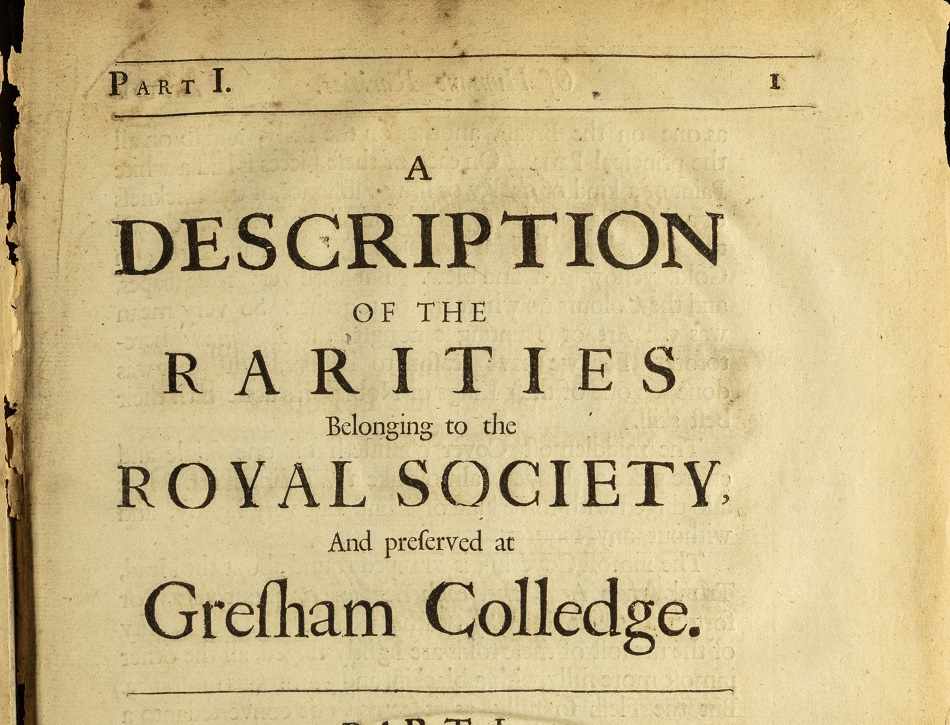Case study: Dr Alice Marples
I received my doctorate from King’s College London in 2016 for a thesis entitled ‘Collecting and Correspondence in the Papers of Hans Sloane (1660-1753),’ conducted in collaboration with The British Library as part of the AHRC-funded ‘Reconnecting Sloane: Texts, Images, Objects’ project. From August 2016 to 2018, I was the Shreeve Fellow in the History of Medicine at the John Rylands Research Institute at the University of Manchester, where I have co-founded the Lives of Letters Network.

Project Summary “Anglo-Scottish Networks of the Early Royal Society, 1660-1760”
This research investigates changing conceptions of state and nation, religious divides and sociable science in the early Royal Society (1660-1760) through the Anglo-Scottish networks of the Society. London and, increasingly, Edinburgh were key sites of science and philosophy in the period, and this project explores how they were related to each other and wider political and social contexts. What did this mean for understandings of natural philosophy, changing notions of Britain, as well as wider relationships in the Republic of Letters? The project considers how scientific exchange was inflected by the changing fortunes of the Royal Society and, specifically, by the Act of Union of 1707, interrogating the growth of a concept of ‘British’ science in the early eighteenth century.
Research activity
The Lisa Jardine Grant funded ten short trips to London from Manchester, to consult archive materials at The Royal Society and the British Library and conduct additional activities to support this research including attendance at a workshop funded by the AHRC International Networking Grant (Collective Wisdom: Collecting in the Early Modern Academy) ‘Antiquarian Science in the Scholarly Society’ (Society of Antiquaries, 1-2 April 2019).
Research findings
Formal connections between scholars in Scotland and England appear to have been initially conducted along political and religious associations. Yet cross-referencing materials in the Royal Society with the Sloane manuscripts has revealed more medical, botanical and antiquarian activities than has generally been appreciated in the scholarship. There was a concerted effort by Robert Sibbald and others to collect, map and promote the unusual natural histories and ancient practices of Scotland, particularly of the Highlands and Islands, at the same time as he sought greater association with London. Sir Hans Sloane President of the Royal Society, in turn, promoted these through sponsorship and through publication in the Philosophical Transactions. I have not yet managed to formally identify or locate all the objects donated to the Royal Society or Sloane by their independent or shared Scottish contacts but will continue to work on this with the aid of the recently digitised Society minute books by Hans Sloane (1686-1711). However, the overlap of Sloane and Robert Sibbald’s networks and priorities is interesting and helps reframe our understanding of the Scottish Enlightenment and its relationship to the Royal Society as well as wider political, cultural and social frameworks.
Research outputs
I am in the process of writing up my monograph chapter on intra-British networks of science. I have included some of this research in an article submitted for a special edition of Notes and Records of the Royal Society (‘Remembering James Petiver’), entitled ‘Petiver’s Local: Middling Exchange and Imbricated Agencies in London’s Natural History Communities.’ I have made contact with representatives of the Sloane Letters project) and Early Modern Letters Online regarding future plans for the transcripts I have made. Through my attendance at the ‘Antiquarian Science in the Scholarly Society’ workshop, I have been asked by Professor Anna Marie Roos to contribute a chapter on scientific antiquarianism to their conference proceedings. I have also been asked by her to present on my work on the Repository at the final workshop of this series in November 2019.
